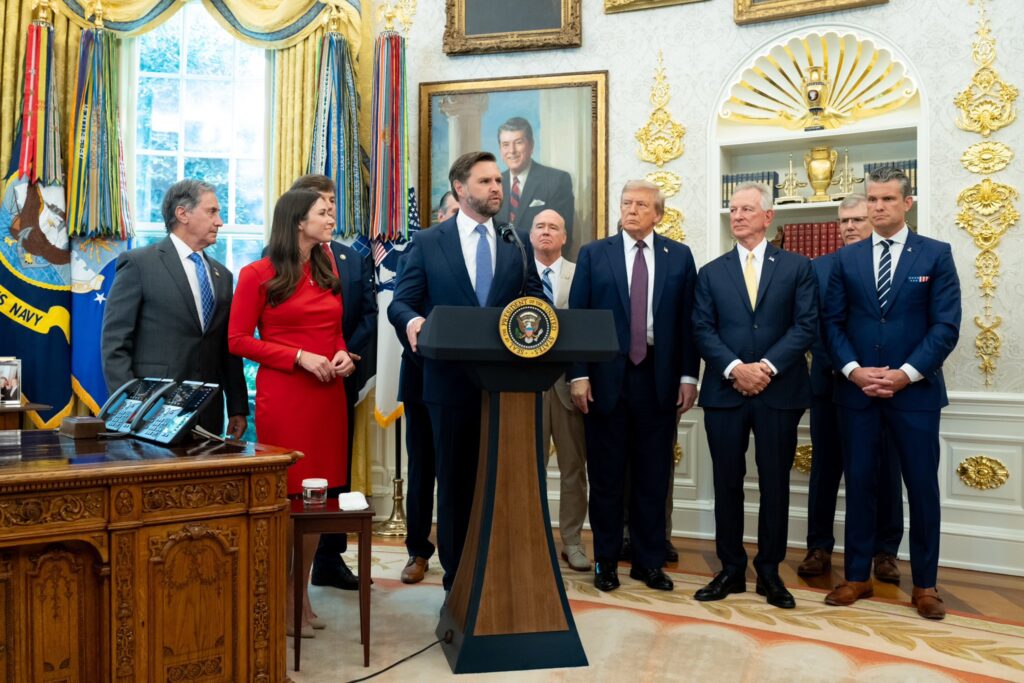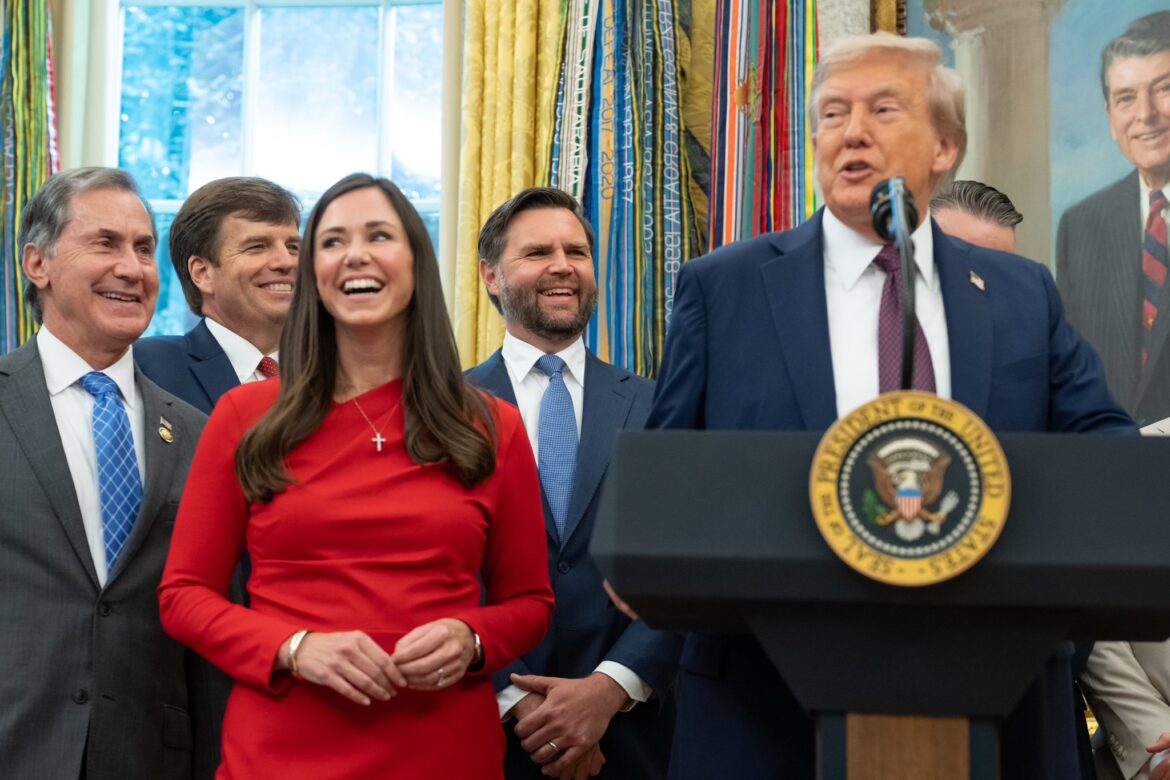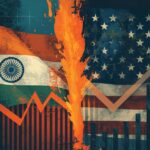U.S. President Donald Trump has described America’s trade relationship with India as “one-sided,” criticizing New Delhi for imposing some of the world’s highest tariffs.
“I get along with India very well… [but] you have to understand, for many years, it was a one-sided relationship… India was charging us tremendous tariffs about the highest in the world… we therefore weren’t doing much business with India, but they were doing business with us because we weren’t charging them foolishly…” Trump told reporters at the White House on September 2, 2025.
Speaking from the Oval Office following the announcement that the U.S. Space Command headquarters will move from Colorado Springs, Colorado, to Huntsville, Alabama, Trump addressed trade policy at length. He was joined by Vice President JD Vance, Defense Secretary Pete Hegseth, and Alabama’s U.S. Senators.
The President underscored that India exported large volumes of goods to the United States but restricted American products with tariffs as high as 100 percent. Citing Harley Davidson’s experience, he said, “It was a 200 per cent tariff on a motorcycle. So, what happens? Harley Davidson went to India and built a motorcycle plant, and now they don’t have to pay tax..”

Trump framed tariffs as a central tool of U.S. trade and foreign policy, calling them a key source of “negotiating power.”
“I settled seven wars, and numerous of those wars were because of trade, and numerous of the trade deals that I made were because of tariffs. It gives you a great negotiating ability,” he said, while criticizing a recent federal appeals court 7-4 ruling that declared the White House’s tariff policy illegal. Calling it a “liberal court,” Trump argued the decision undermined U.S. leverage against countries that “have been imposing heavy tariffs on the U.S. for the past 40 years.”
“Our country is doing so well, but we had a liberal court that gave us a very shocking ruling,” he said. “That’s why we have $38 trillion in debt. We won’t have it for long if they allow us to do what everybody knows, we should be able to do.”
Warning that the absence of tariffs would put the U.S. in “serious trouble,” Trump noted that nearly $17 trillion in investment had flowed into the country, attributing much of it to tariff policies. He confirmed the White House would appeal to the Supreme Court: “Now we’re going to be asking for early admittance. We’re going tomorrow, and we’re going to ask for expedited ruling.”
He cautioned that overturning the policy could have significant consequences. “If that ruling ever went against us, I guess [we] would have to give back hundreds of billions… to countries that have been ripping us off for the last 35 years. And I can’t imagine it happening on a legal basis. They have no legal basis whatsoever, but on a commonsense basis, it would destroy America.”
Discussing what he called the “financial fabric” of the nation, Trump said, “We’re a rich and incredible country right now.” He recalled attempts during his first term to impose tariffs on European nations but said the effort was disrupted by the COVID-19 pandemic. “But we did with China, and China paid us billions and billions of dollars, and I started the process, but then I had to end it a little bit because of COVID.”
On recent trade deals, Trump noted, “They’re paying us hundreds of billions of dollars,” referring to Japan, while also pointing to agreements with South Korea and the European Union, which he said are paying $950 billion. “They’re happy. As one of them said, it’s amazing that we got away with this for so long.”
The President highlighted new automotive investments in the U.S., attributing them to tariff policies. He said companies from China, Mexico, and Canada are building factories in the United States to avoid import tariffs. “They’d like to be here… the tariffs are protecting them… and they want to avoid paying tariffs… when they build their cars here, they don’t have any tariffs to pay.”






